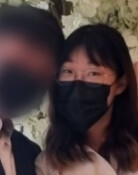Japanese academia and civic groups issue statement criticizing Ramseyer’s paper
Japanese academia and civic groups issue statement criticizing Ramseyer’s paper
Posted March. 11, 2021 07:29,
Updated March. 11, 2021 07:29
The Japanese academia and civic groups announced a statement on Wednesday criticizing Professor John Mark Ramseyer of Harvard University for his paper describing those forced into being sex slaves by the Imperial Japanese Army as licensed prostitutes. History-related groups began to raise their voices beyond individual Japanese scholars criticizing the paper.
A Japanese civic group “Fight for Justice,” which runs an academic website on the “comfort women” issue declared an emergency statement on Wednesday condemning Ramseyer’s paper along with the Historical Science Society of Japan, the Association of Historical Science, and the History Educationalist Conference of Japan. The Historical Science Society of Japan is the biggest historical group in Japan with over 2,200 members. “We cannot suppress our astonishment that this article (conflating “comfort women” with licensed prostitutes) passed through a scholarly peer-review process and was published in an academic journal,” the groups said in an emergency statement by Japan-based researchers and activists criticizing a new form of denialist discourse on Japanese imperial military “comfort women.” “The article not only ignores previous research and treats many cited Japanese sources arbitrarily, but it also makes essential assertions without offering any evidence,” the statement added.
The groups listed a series of issues with the paper. Regarding Ramseyer’s claim that the comfort women system was part of licensed prostitution, the statement said that although the Japanese Imperial Military’s comfort women system and the system of licensed prostitution were deeply related, they were not the same and that unlike licensed prostitution, comfort stations were set up and managed at the direction and command of the Japanese military itself. It also pointed to the fact that comfort women were recruited directly by the Japanese military or by military instruction or command.
Regarding his claim that comfort women were under the contracts of prostitution, the statement said that both the primary sources themselves and voluminous historiography on this subject make clear that under the system of licensed prostitution, contracts for prostitutes were actually agreements to buy and sell people.
“But Ramseyer, through arbitrary citations to secondary sources and without producing evidence, argues that prostitutes and karayuki-san (women who were trafficked overseas to work at brothels) freely entered into contracts,” the statement added. The groups also emphasized that the comfort women system was a form of sexual slavery and criticized that Ramseyer’s article completely lacks any perspective on women’s human rights.
“Ramseyer’s article views the comfort women issues as a South Korean issue and contains an anti-Korean mechanism,” said Professor Itagaki Ryuta of Doshisha University. “Though belated, the issue must be also dealt with in Japan.”
Japanese civic and academic groups, including Fight for Justice, will carry out additional activities regarding the issue, such as holding an online seminar on Sunday to analyze and criticize the issues of Professor Ramseyer’s paper.
bsism@donga.com
Headline News
- Med professors announce intention to leave hospitals starting Thursday
- Bridge honoring Sgt. Moon Jae-sik unveiled in Pennsylvania
- Chief of Staff Chung tells presidential secretaries to stay away from politics
- US FTC bans noncompete agreements
- N. Korea launches cyberattacks on S. Korea's defense companies







